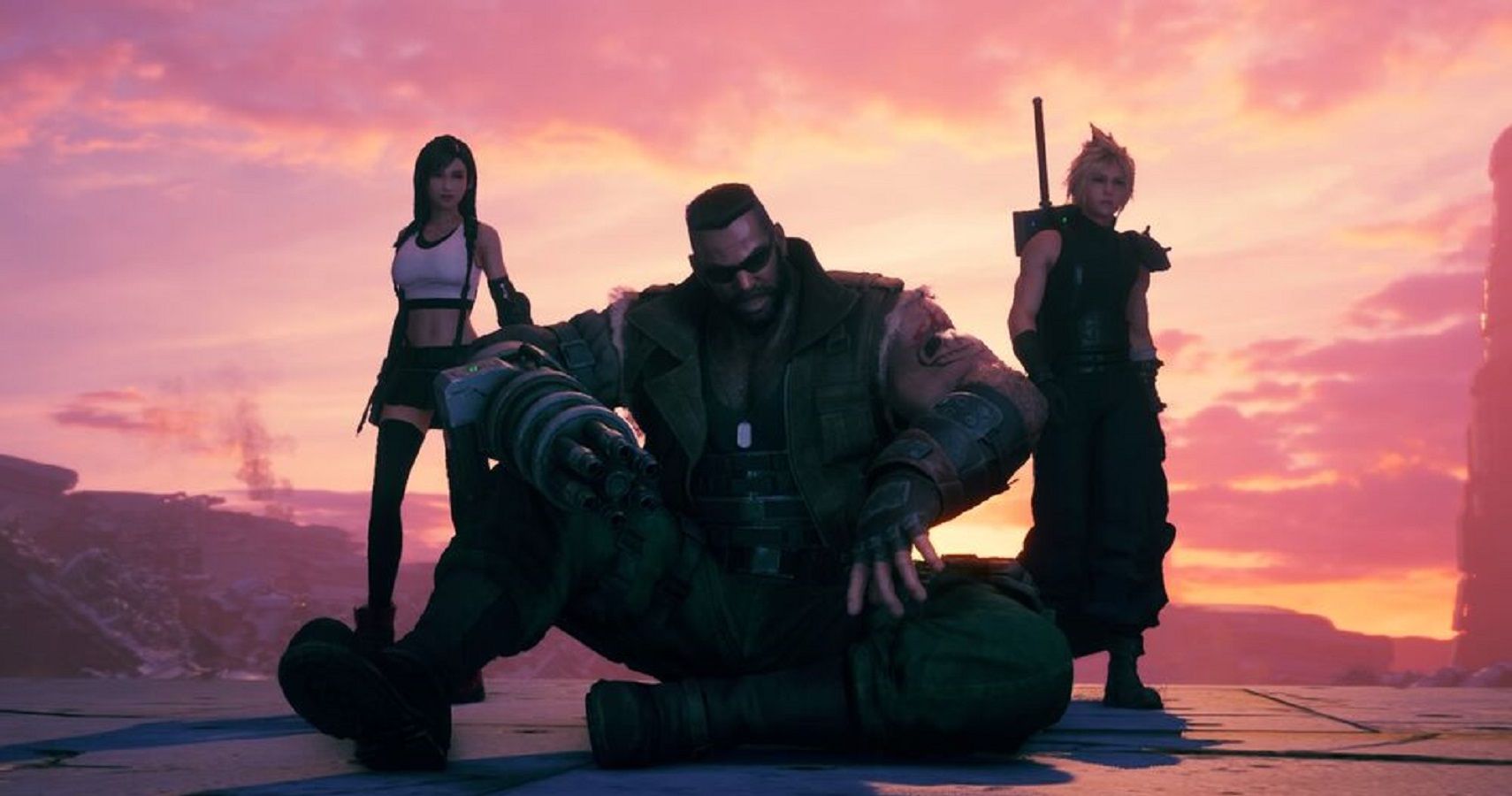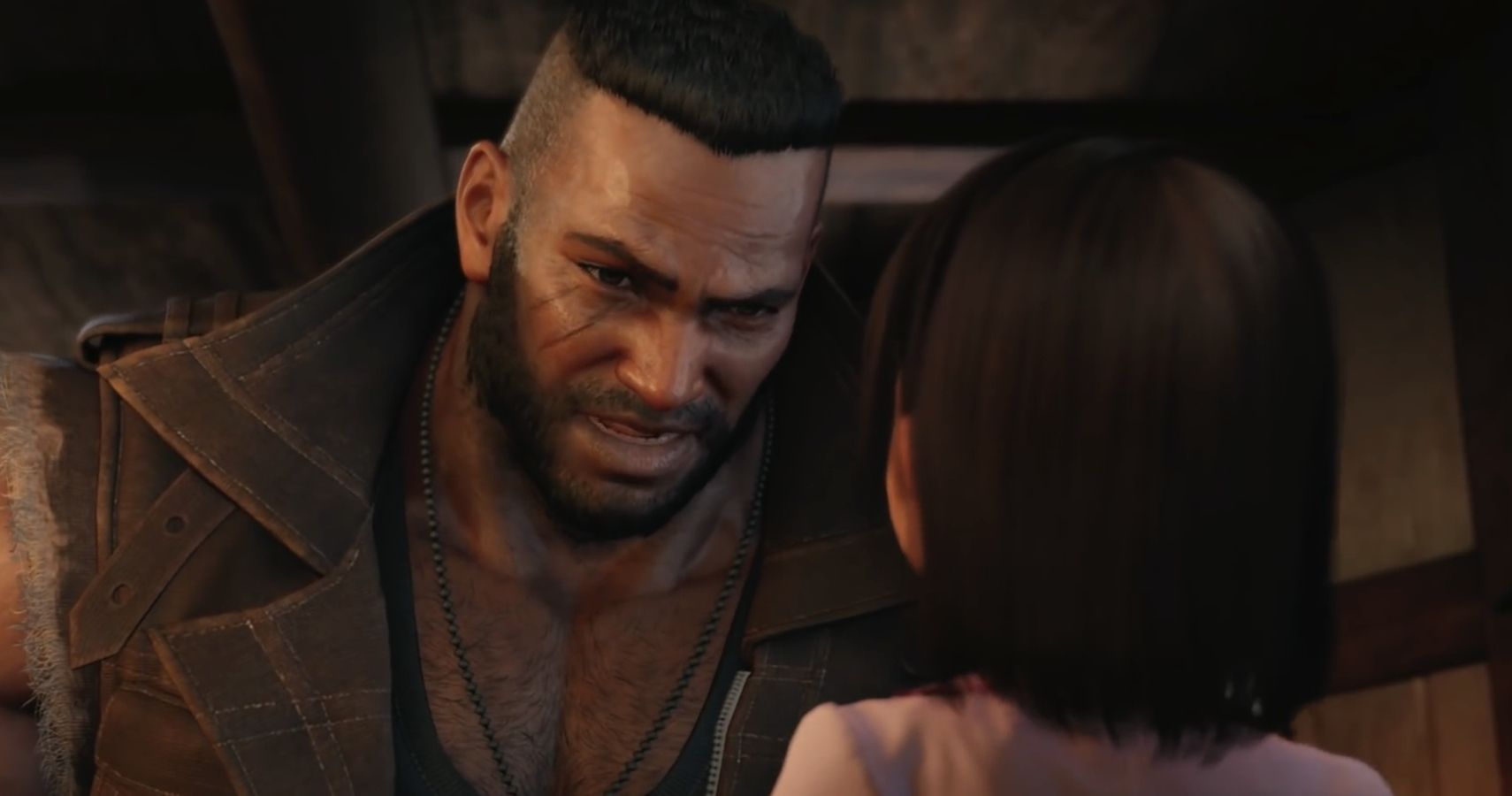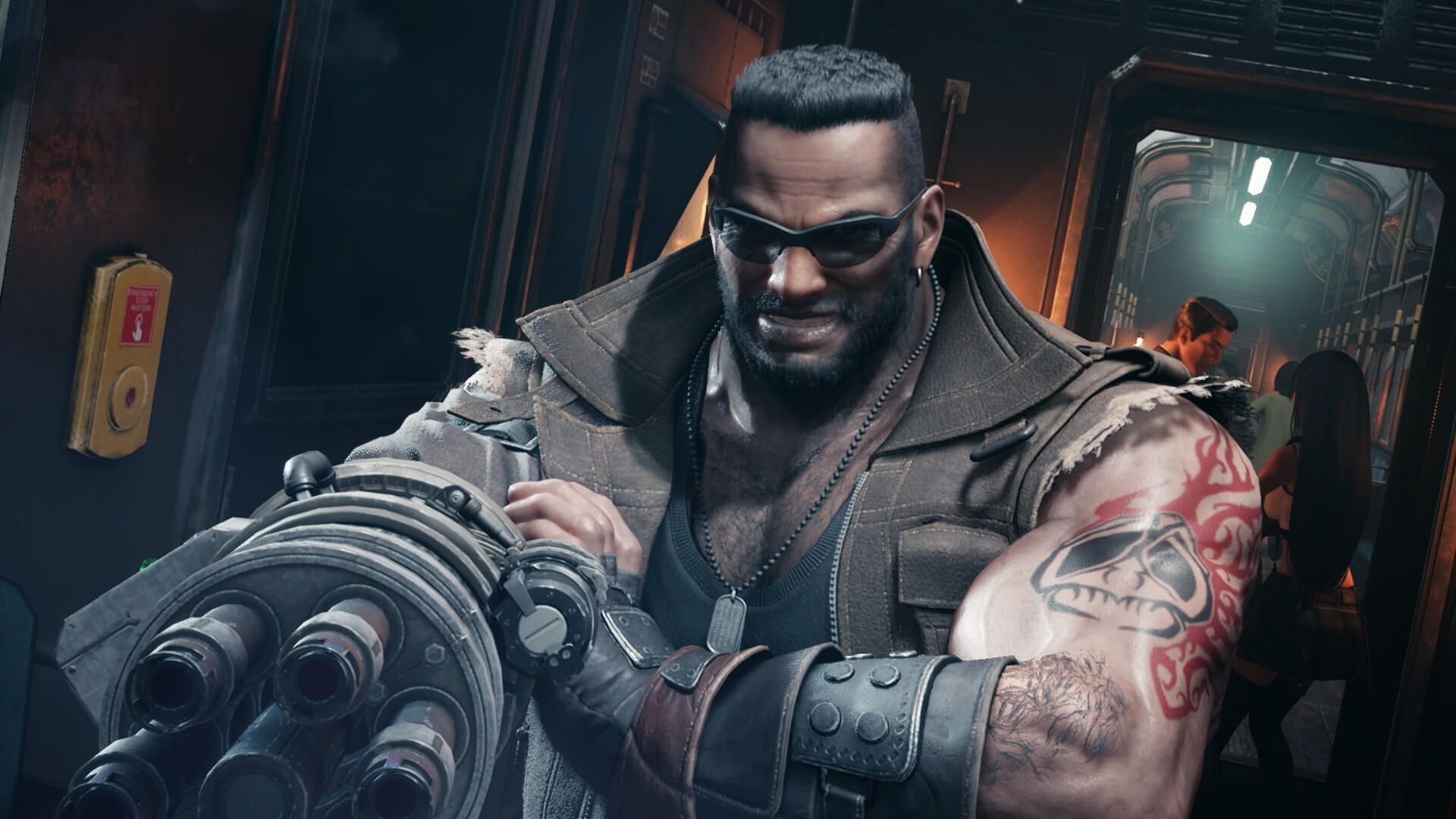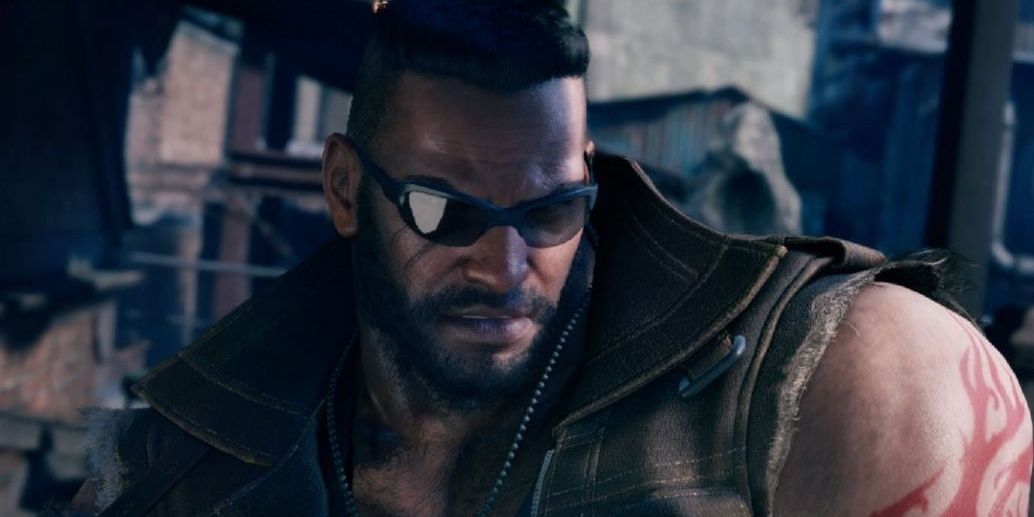Final Fantasy 7 Remake is an ensemble game at heart. Though you play through the non-combat sections as Cloud, in combat you get to be everyone at once. The game acknowledges its turn-based roots while modernising itself to action-combat, taking inspiration from the original Final Fantasy 7, as well as Final Fantasy 13 and Kingdom Hearts, to create something as refreshing as Batman: Arkham Asylum once was. This lets you step into everybody’s shoes, and shows every character to be important. The storytelling reflects this, and the game understands that Barret - not Cloud - is the real hero of the piece.
As well as Cloud and Barret, there’s also Aerith and Tifa in the party, while Red 13 joins towards the end, plus Jessie, Wedge, and Biggs as supporting stars - it’s a big cast, and that’s before you get to the fact there’s several villains in the mix too. It’s to the game’s credit that we get to see them all shine (and I came into the game with almost zero knowledge of the original, so it’s not like I’m bringing my own perceptions formed by 20 years of nostalgia either). We get to see everyone’s stories, and despite Cloud’s position as the leading man and the importance the narrative places on Aerith, Barret stands out.
For one thing, Barret has the clearest motivations of the group, and these motivations shape the story. Final Fantasy 7 Remake is a game with climate politics at its heart, and that makes Barret a very modern hero. In 1997, when the game was originally released, the climate crisis was still something of a fringe issue, but today it’s a major concern, and that alone helps reposition Barret from a radical to a voice of the people. It’s not this alone that reveals Barret to be the game’s heartbeat, however. When I played the remake, I did so with only a cursory knowledge of the game from pop culture. I knew Cloud fought Sephiroth. I knew Tifa lived underneath the rotting pizza - Midgar’s big metal dome in the sky. I knew what happened to Aerith. But I knew relatively little about Barret. Part of that was down to the fact a lot of the conversation around the game focused on whether Cloud’s true love was Aerith or Tifa, but most - I assumed - was because Barret simply wasn’t that interesting. How true that is in the original I have no clue, but that certainly doesn’t hold over to the remake.
Initially, Barret barely lived up to my low expectations. In the opening stages, he’s incredibly one-note, constantly shouting in his gruff, blaxploitation voice with no nuance or character development. He’s angry and he cares about nature - that’s kind of it. He mainly exists to prod at the stoic and reserved Cloud, goading backstory out of him for our benefit. Once the opening mission is over and we return to Seventh Heaven in Sector 7, however, we immediately see Barret in a new light. His daughter, Marlene, is introduced, and we begin to see a softer side of Barret, although the relationship between him and Cloud remains prickly at best. Through Marlene, Barret’s fight for the future becomes less about carnage or rebellion and more about righteous anger. He’s fighting for something he believes in. He’s fighting for Marlene.
As we learn more of his motivations, we also spend more time with Barret, and he feels less need to be “on”. His behaviour around Cloud, a merc who used to work for Shinra, initially seems forced, but that’s because it is. Barret is keeping his guard up, because he doesn’t quite trust Cloud. His softness is not only saved for Marlene - Tifa, Jessie, Biggs, and Wedge all get to see a very different Barret to the one Cloud sees. Since we play most of the game as Cloud, we see Barret transform as Cloud earns his trust - we see more intelligence and consideration, and we see a fully rounded character, not an angry, blockheaded tank. The Mr. T-style voice remains, but with a calmer Barret it feels less of a caricature.
Then there’s Barret’s gun arm. Much like Cloud’s massive Buster Sword, I thought this was just a cool weapon, but there’s more of a backstory to it. Barret lost his arm after it was shot off during a fire in his village - a fire started by Shinra, the main villains of the game. This fire was in retaliation to action by Avalanche, the group of eco-warriors Barret fights for during the game - although at the time of the fire, he did not. In the fire, Barret’s friend Dyne dies (or so it would seem), with Barret ultimately losing his arm trying to save him. Barret’s wife also dies in the fire. Marlene is actually Dyne’s daughter, with Barret adopting her shortly after.
Marlene and the gun arm represent something similar to each other. After his amputation, Barret uses his disability to make himself stronger, and uses it to fight against those who wronged him. As well as his arm, he lost his best friend and his wife - he also blames himself because he initially supported Shinra, thinking their Mako reactor would cure his wife’s illness - and he channels that pain into hope by raising Marlene. Barret is a character with huge depth and the remake showcases this expertly.
Barret is able to evolve through the story and emerge as the game’s true hero even with a limited spotlight. It seems like the sequel will verge further away from the original storyline, meaning it’s anybody’s guess what will happen, but I think his current role suits him. Despite his huge frame, loud voice, and bouts of yelling, Barret is best as an understated character, doing everything he can to fight for what’s right - doing everything he can to fight for his daughter. The spotlight suits Cloud, Aerith, and Tifa more - Barret is just fine where he is, slowly driving the game forward without the innate drama of Cloud and Aerith.
We have a lot of fathers in games - some might say too many, given the lack of mothers - but Barret feels different to the usual crop. He’s Black, for one, and Black fatherhood is not explored in popular media as much as white fatherhood, and neither is adoptive parenthood. But Barret is also very deliberately not the lead, has a cause bigger than his daughter (yet simultaneously all about his daughter), and adds much-needed texture to an already layered story. Barret might not be the star of Final Fantasy 7 Remake, but it definitely feels like he’s the hero.




